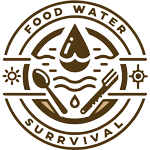Trusted Tactics for Food Rationing in Emergencies
Just as you're thinking it's another ordinary day, you could find yourself in the middle of an unexpected emergency, making it crucial to know how to manage your food supplies effectively.
You've likely stocked up on cans and dry mixes, but do you know the best practices for rationing these resources to ensure your family remains nourished and hydrated through tough times?
It's not just about having a stash; it's about understanding the nutritional needs, proper storage to prolong shelf life, and creative meal planning to keep morale high.
As we explore trusted tactics for food rationing, you'll discover that it's not only about survival but maintaining a semblance of normality and comfort in the face of adversity.
Let's uncover the strategies that will prepare you for any situation, ensuring you and your loved ones stay well-fed and healthy.
Assessing Nutritional Needs
When planning food rations during emergencies, it's crucial to first assess individual and group nutritional needs to ensure everyone's dietary requirements are met. This step involves considering allergies, medical conditions, and cultural or religious food preferences. By doing so, you'll tailor emergency food supplies to suit everyone, preventing health issues and ensuring inclusivity.
Next, calculate calorie needs and balance macronutrients. This step is vital to provide adequate nutrition and sustain energy levels during stressful times. Prioritize nutrient-dense, non-perishable foods with a long shelf life. Items like canned foods, dried fruits, granola bars, and peanut butter should top your list. These food products not only meet daily nutritional needs but also support overall health in emergency scenarios.
Water Storage Techniques
Ensuring a sufficient water supply during emergencies is crucial; storing at least one gallon of water per person per day in airtight containers will help prevent dehydration and maintain hygiene. When you're setting up your emergency water supply, remember, clean water is paramount. Using airtight storage containers will safeguard your water from contamination, ensuring safe water at all times.
To optimize your water storage, place these containers in a cool, dark area away from direct sunlight to prevent the degradation of the container material and water quality. This precaution enhances the longevity of your emergency water supply. It's also wise to rotate your stored water every six months. This rotation ensures the water remains fresh and potable, eliminating the risk of consuming stale or contaminated water.
Furthermore, considering additional water purification methods, such as tablets or filters, can provide an extra layer of security. These methods can purify water from various sources, making it safe to drink.
Preserving Food Supplies
Just as securing a reliable water supply is critical in emergencies, so too is preserving your food supplies to maintain nourishment and health. Long-term food storage is essential for keeping food safe and nutritious over time.
Here are three key tactics to ensure your food supply remains shelf stable and ready when you need it:
- Invest in Proper Containers: Store your dry goods like grains and dry milk in plastic buckets to protect from pests and environmental factors. This method greatly increases the longevity of your food supplies.
- Stockpile Diverse and Nutritious Foods: Build a stock of canned fruits and vegetables, which are commercially canned to ensure food safety and a lengthy shelf life. Don't forget to include nitrogen-packed cans and freeze-dried foods for extended storage, keeping an eye on the expiration date to maintain food safety.
- Rotate and Diversify: Regularly rotate your stockpile to use items nearing their expiration date and replace them with fresh supplies. Diversify your storage to include essential vitamins and protein sources, ensuring a balanced diet.
Ration Planning Methods
Determine your family's daily calorie needs to effectively balance your food supply during emergencies. This step is crucial in ration planning methods, ensuring each member gets the necessary energy to stay healthy.
When planning your food supply, it's essential to incorporate balanced nutrition. Refer to MyPlate.gov for guidance on selecting foods that meet dietary requirements, tailoring menus to both the nutritional needs and preferences of your family.
For emergency preparedness, prioritize food items that are high in calories and nutrients yet have a long shelf life. This approach maximizes the amount of food available per person per day, reducing the risk of running out too quickly.
Additionally, opt for smaller cans or packages to avoid leftovers, facilitating better portion control and minimizing waste.
Sustaining Mental Health
While planning your food supply is crucial for physical health during emergencies, it's equally important to address how these situations impact your mental health. Managing stress and staying informed without becoming overwhelmed are key components of maintaining mental well-being during a disaster or emergency.
Here are three practical strategies to help you sustain mental health:
- Limit Exposure to Distressing Information: Stay informed about the natural disaster or emergency without overloading yourself. Take breaks from news and social media to reduce stress and anxiety.
- Maintain a Routine: Ensure you have enough supplies for emergency food and water, which aids in the food preparation process and establishes a sense of normalcy. Incorporate regular sleep and physical activity into your routine to bolster mental resilience.
- Practice Mindfulness and Connect Socially: Integrating relaxation techniques into your daily life can help manage stress. Despite the challenges, try to maintain social connections, even virtually, to combat feelings of isolation.
Preparing an emergency food supply isn't just about having enough foods in your emergency stash; it's also about planning your emergency response in a way that supports both your physical and mental health.
Conclusion
In conclusion, it's vital to assess your family's nutritional needs and ensure you've got enough water stored.
Protect your food supplies from spoilage and pests, and plan your rations wisely to avoid waste.
Don't overlook the importance of sustaining mental health; a balanced diet can help maintain morale during tough times.
By following these trusted tactics, you'll be better prepared to handle emergencies efficiently, keeping your loved ones safe and nourished.
